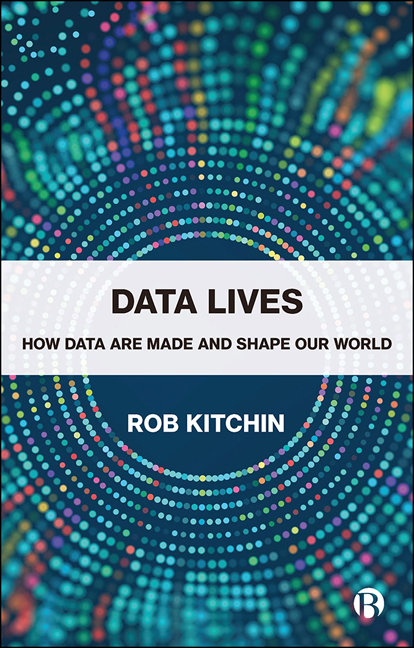1 - Data Stories
Published online by Cambridge University Press: 05 January 2022
Summary
Data. Big data. Open data. Database. Personal data. Data-driven. Data brokers. Data analytics. Data is the new oil. Data plan. Data deluge. Data activism. Data science. Data infrastructure. Data justice. General Data Protection Regulation. Data. Data. Data …
A decade ago, the word ‘data’ seemed to be largely the preserve of researchers and a few professional administrators and workers. Now, it has entered our everyday lexicon. We are aware that our data are routinely harvested, that our digital world generates and consumes vast volumes of data, and our economy and government are becoming data-driven. Yet, it is not always clear what data are, how best to make sense of them, and what is at stake.
Before this data revolution, data were largely treated in a common sense way. They were gathered facts about the world; the raw material generated through scientific measurements, government surveys, administrative systems, academic research, explorations and fieldwork. They were the building blocks that enabled the creation of information and knowledge. However, just as we pay little attention to the bricks that enable us to build complex buildings, which collectively create vibrant cities, we rarely focused critical attention on data. Consequently, we have found ourselves living in a data-driven world that, on the one hand, seems intuitive to navigate – we use digital technologies, click here and there, fill out online forms, agree to terms and conditions, share our thoughts and photos. On the other hand, we have little comprehension as to the full spectrum of data harvested about us, what happens to them, and how they are used.
Digital systems are often black-boxed, meaning we have little sense of how they work beyond their interface and immediate effects. Data-rich organizations, such as private companies, data brokers or state bodies, are by design secretive, either to protect commercial advantage, hide their activities, or to protect the integrity of their work. We simply have to trust that they are only generating the data they need, and are treating, using, and acting on these data in ethical ways.
In recent years, this trust that has been eroded. Our faith in digital systems and data-rich organizations has been undermined by a series of scandals and data hacks.
Information
- Type
- Chapter
- Information
- Data LivesHow Data Are Made and Shape our World, pp. 3 - 14Publisher: Bristol University PressPrint publication year: 2021
